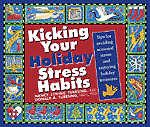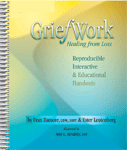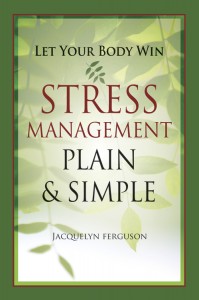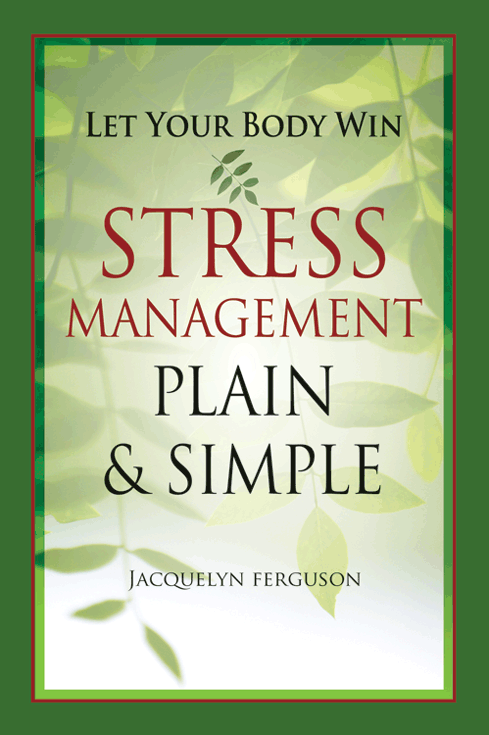Holiday Traps or Holiday Treasures
From Kicking Your Holiday Stress Habits
By Donald Tubesing, PhD, MDiv & Nancy Loving Tubesing, EdD
Do eagerly look forward to the holidays? Does your creative, not to mention spiritual, energy expand?
Or are your holidays filled with too many “shoulds” that exhaust you?
Take this assessment to identify your Holiday Traps and Holiday Treasures so you can continue the treasures to reduce your holiday stress and change the traps that add stress to your already too-busy life. Circle true or false for each. If it’s difficult to decide, estimate which answer would be 51% true of you.
1. You lose control over your activity calendar saying “yes” to all invitations and requests. Each carries a “social obligation” burden and can overwhelm you. Or the opposite, you sit at home waiting for someone to include you, which doesn’t happen so you’re all alone again.
True False
2. Gift giving is a creative activity for you. You excel at looking through your receivers’ eyes to select something very appropriate for each. You enjoy the planning, shopping and the wrapping of each gift, as well as their appreciation of your choice.
True False
3. You live far away from your family of origin and cannot make it home for the holidays and will deeply miss your family’s holiday traditions. How depressing. OR You and your new mate both have your own treasured holiday traditions. In an attempt to make you both happy you work hard to meld them together, which is more confusing and exhausting than it is comforting and enjoyable. Why does he have to have potato pancakes on Christmas morning? Why can’t he give that up?
True False
4. You love to decorate your home for the holidays. All of the festive sights, smells and sounds energize you. You love hearing from loved ones far away through their cards and can hardly wait to visit and celebrate with those closer to home. It’s all so magical and loving.
True False
5. You give the gifts you hope to receive, while at the same time fear you won’t get what you want. You want so many things and can’t prioritize your preferences. You tend to measure others’ love for you by how many gifts and the expense of each they give to you.
True False
6. You love the busyness aspect of the holidays because it fills you with a sense of purpose and worth. All of the social gatherings reconnect you with your support system that you hold dear. Plus, the extra commitments help you appreciate the solitude and silence when they return.
True False
7. You dread gathering with your family of origin for the holidays knowing that the same old conflicts and pressures will reappear. Your older siblings treat you like you’re still their little sister while your parents trigger everyone’s defenses just like they always have. What a pain!
True False
8. Making the holidays perfect is important to you. Your house, the food and the gifts must be memorable and appreciated. But every year you feel let down when reality doesn’t match your Madison Avenue expectations. You expect yourself to feel loving, joyous and peaceful but find yourself feeling lonely, sad and discouraged.
True False
9. One of the many reasons you so enjoy the holidays is that they allow you to get back in touch with your childlike past imbuing the festivities with magic and meaning. You love all of the sights and sounds and the comfort they bring you. You enjoy celebrating your heritage and affirming the love that connects you no matter what has transpired.
True False
10. The holidays allow you to get in touch with the meaning in your life. The rituals and traditions stimulate spiritual reflection and centering as well as a sense of playfulness, excitement and wonder. You know the traditions can help you through the difficult times even when your feelings don’t quite match the occasion.
True False
Scoring directions
Check out whether your “true” answers indicate a trap or a treasure.
|
“True”
Answers |
|
“True”
Answers |
| Santa Claus Trap |
Item #5 |
Santa Claus Treasure |
Item #2 |
| Activity Trap |
Item #1 |
Activity Treasure |
Item #6 |
| Tradition Trap |
Item #3 |
Tradition Treasure |
Item #10 |
| Life Script Trap |
Item #7 |
Life Script Treasure |
Item #9 |
| Magic Trap |
Item #8 |
Magic Treasure |
Item #4 |
1. Santa Claus Trap to Santa Claus Treasure
Gift giving can be fun but can become a major holiday hassle; it takes time when you’re stretched thin already and in today’s economy who can afford them? To help move you from trap to treasure answer these questions:
- What kind of gift giving would be meaningful to you and to your recipients?
- What would help your heart and soul – and theirs – feel refreshed?
Give meaningful gifts:
- Make a gift instead of buying it;
- Give your time and attention in some way;
- Don’t just give tickets to an event but go along and share the experience;
- Give a gift of affirmations, memories, thanks;
- Donate blood, give groceries to a food bank; give an exhausted mother an afternoon of child care, or help a neighbor in need.
- Put yourself on your gift list, too. Treat yourself to a gift that’s perfect for you.
Also, learn to ask for what you want. Don’t be a closet hinter. If whoever it is you’ve hinted to in the past hasn’t gotten it, what makes you think s/he will this year? Don’t expect others to read your mind. Speak up. For example, if you’re lonely, ask someone to share your celebration – or ask to participate in theirs. If you need time alone in the middle of all of the holiday togetherness, say so.
Helpful hint: if you can’t get what you want, want what you get; it’s much more satisfying than wishing for the impossible.
2. Activity Trap to Activity Treasure
It is startlingly easy to get caught up in the Activity Trap over the holidays. You have your own expectations of yourself and of others, as does everybody else.
Start by listing all of the things you want to accomplish before and during the holidays then cross out the unnecessary activities.
- Identify your top priorities and make time for them, even if that means something else gets tossed out. Remember, if everything is a priority then nothing is.
- What energizes you? Do more of these activities, while doing less of what drains you.
- Do your unpleasant tasks as quickly and painlessly as possible, then reward yourself. Refuse to suffer.
- Keep for yourself the activities you enjoy, even if they aren’t essential or could be done by others. You need them. They nurture you.
- When you’re being a slave, lighten your load. When the guests arrive use this great idea from a workshop participant:
Before anyone arrives, write down all the little jobs it takes to host a wonderful gathering on small and colorful, festive pieces of paper. Fold them and put them into a bowl.
As your guests arrive invite them to draw one task from the bowl and agree to take on the responsibility. Present this idea in a cheerful way.
Include everything you can think of: set the table, recycle empty cans and bottles, clear the table for doing dishes, bring out after-dinner coffee, etc.
Then observe how virtually everybody enthusiastically jumps into their assigned job and enjoys the teamwork and camaraderie this creates. If anyone resists they won’t for long when they see how willingly everyone else participates.
You can also turn obligations into energizers by creatively updating them. Any new approach can energize you.
- Instead of sending out holiday cards, write a compliment to each friend rather than a history of the past year.
- Surprise some people on your list with a brief, long distance phone call.
- Fill out your holiday cards at the library, a favorite restaurant or someplace enjoyable to you.
3. Tradition Trap to Tradition Treasure
Some traditions are worth continuing, others definitely need to be pitched, while still others can be tweaked and made better.
- Which tradition from your past would you like to resurrect? Maybe it’s singing holiday songs before dinner? Or attending a religious ceremony together. Or volunteering at a soup kitchen. Make sure participating in this tradition lifts your spirit versus depresses you with yet one more obligation.
- Ask friends about their traditions and adopt an appealing one for yourself.
4. Life Script Trap to Life Script Treasure
Do you feel trapped in the roles you play in life: the always giving mother, the always providing father, the always good little sister or brother?
Be aware that when you return to your family of origin for any reason, not just for the holidays, that it is interestingly common for all to revert to the roles they each had during those years. Big brothers boss more; little sisters please more, etc.
Give yourself permission to feel whatever you feel. Don’t feel what you “think you should feel” or “wish you felt.” Trying to deny or manipulate your feelings, or act contrary to them only distances you from yourself. Not that you need to confront everyone who’s upsetting to you at the moment of upset, but if you would more frequently tell people how you feel about what they’re doing in an assertive fashion, more conflicts would be resolved more quickly.
Which situations or people trigger your regressions the most? Prepare for these by creating a mantra to say to yourself before, during and even after your gathering. For example, let’s say your Uncle Sid is a boorish man who loves to argue politics with anyone who will accommodate him. When he picks on you your automatic reaction is to get defensive and loud. Follow these three steps to respond to him the way you want:
1. What is your goal? For example, to avoid getting negatively hooked by Uncle Sid
2. To achieve this goal how do you need to be? Calm, relaxed, accepting of him and gracious no matter what he says.
3. Affirm this over and over again. “I’m calm and relaxed, accepting and gracious.”
Repeat this to yourself a hundred and more times before you’re with him, deep breathing as you do. This will prepare you. While you’re in his presence repeat it to yourself again. When you feel you’re getting hooked, repeat it in your mind again over and over while slowly deep breathing.
5. Magic Trap to Magic Treasure
There are no perfect holidays – for anyone. If you think others experience them then you are experiencing the Magic Trap. Magical thinking tends to be all or nothing thinking. Everyone is perfectly happy all of the time or they’re miserable. It’s never that stark.
Which holiday expectations do you have that go typically unmet? Unmet expectations are often unrealistic to begin with; no one could satisfy them. So, for example, if you want everything to be perfect the day of your holiday celebration it’s your expectation that’s your problem. Accept what is. Realize that your need for perfection can cause the very problems you later feel depressed about. Those around you can feel your too-high expectations and rebel. Learn to accept each person as he or she is. Don’t expect behavior from them that they historically haven’t shown. So if your brother is always late for the celebration, let him be late. Don’t take it personally. Accept that this is a part of him for whatever his reasons.
Which holiday expectations fill you with joy historically? If it’s planning and obtaining everyone’s gifts and you do this throughout the year, do it and enjoy it.
The degree to which you turn your traps into treasures will be the degree to which you lower your stress and truly enjoy the season.
From Kicking Your Holiday Stress Habits by Donald A Tubesing, PhD, MDiv, and Nancy Loving Tubesing, EdD.

Like this:
Like Loading...
 When considering options, do you suffer from analysis paralysis? Or, do you impulsively react? To counter both of these approaches use the “if … then technique:”
When considering options, do you suffer from analysis paralysis? Or, do you impulsively react? To counter both of these approaches use the “if … then technique:”





